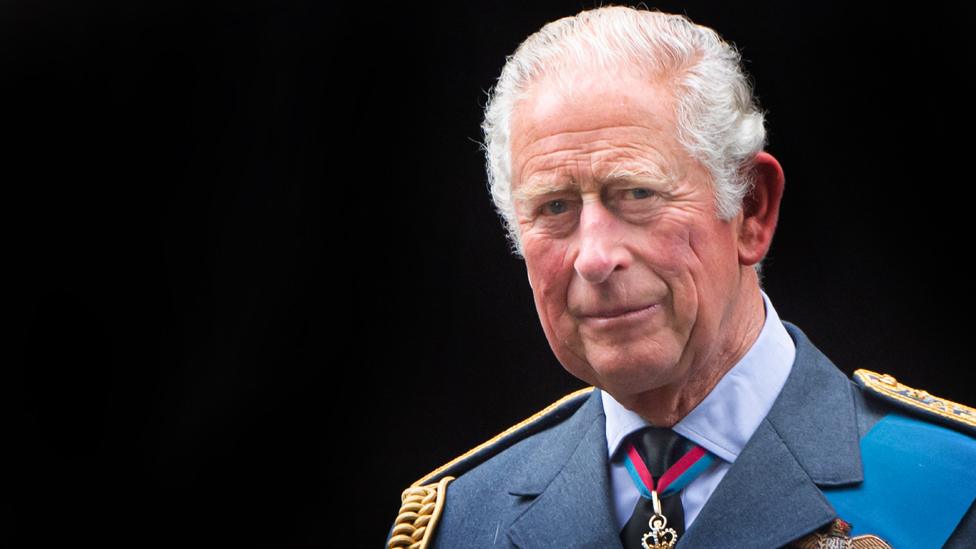What message will King Charles’s first trips send?
- Published
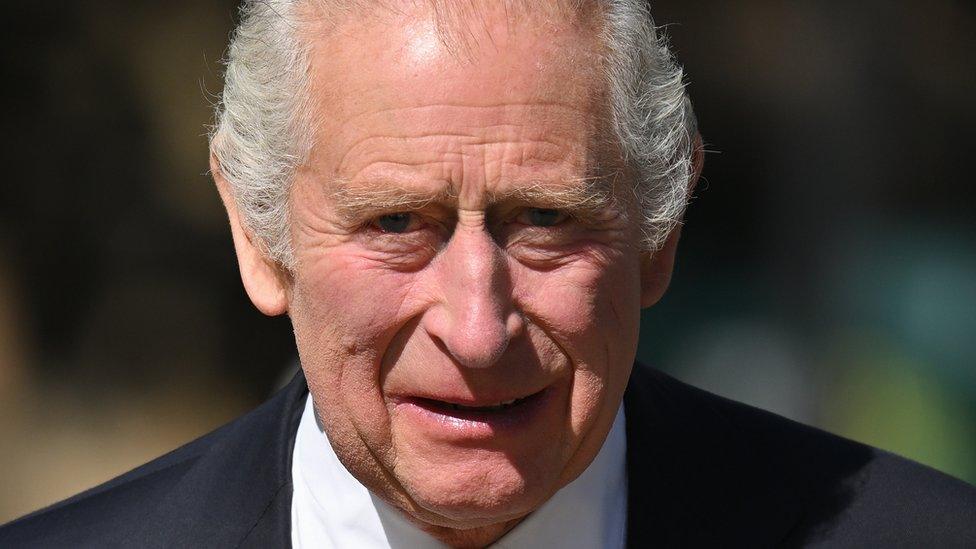
King Charles will be under scrutiny for how he puts his own stamp on the monarchy
What should we take from King Charles's initial steps as monarch when, on Monday, he begins his first public visits since the Queen's funeral?
We know that for his first overseas trip he won't be going to the COP27 conference - but what about the messages sent from his first UK visits since the end of royal mourning?
"This is the start of him setting out his stall," says Prof Pauline Maclaran at the Centre for the Study of Modern Monarchy at Royal Holloway, University of London.
Among his inaugural events, since the end of the period of royal mourning, will be a reception in Edinburgh for South Asian communities from across the UK - bringing together people with links to India, Pakistan, Bangladesh and Sri Lanka.
"It makes a statement that he's very much embracing a multi-faith, multi-cultural approach - the monarchy showing itself as more diverse," says Prof Maclaran.
She says the Royal Family will be sensitive to accusations of being out of touch. This event sends a message about inclusivity and reflecting modern Britain.
Planning for the Coronation will also have a nod in this direction, says Prof Maclaran.
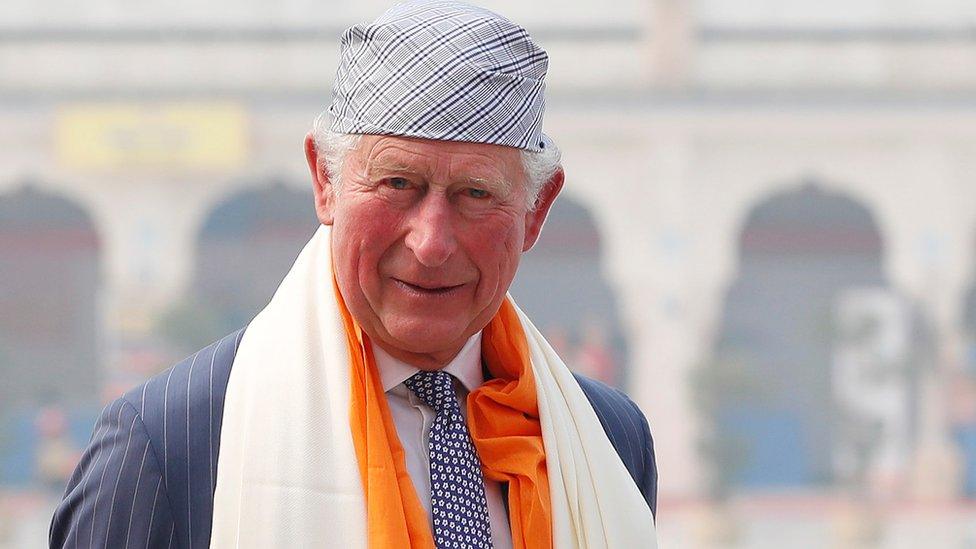
King Charles has made 10 visits to India as Prince of Wales, including a recent trip in 2019
Sir Anthony Seldon, historian and author, says King Charles has a strong desire to bring together people from different religions, beliefs and ethnic minorities.
"That's very important to him. He wants to be accepted by all faiths, all backgrounds, all classes, and to find his own way to be a unifying figure," says Sir Anthony.
He sees the new King as aspiring to be a figure above short-term party politics, who will stand against "forces which can damage cohesion and community".
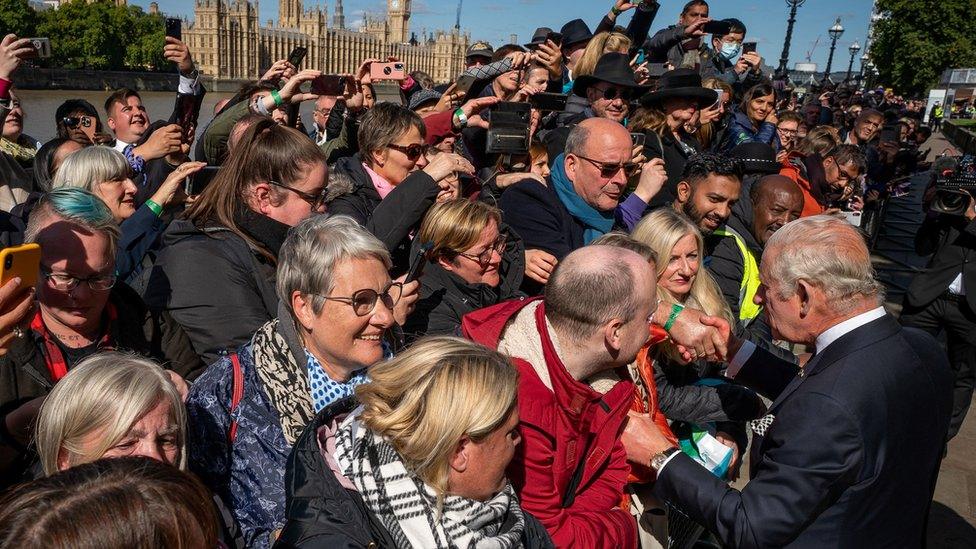
King Charles has shown a more approachable style when meeting the public, reflecting a modern monarchy
King Charles, in a speech to faith leaders in the days before the Queen's funeral, described his own view of Britain as a "community of communities".
He said it would be his "duty to protect the diversity of our country".
One of his big challenges will be navigating relations with the Commonwealth. Prof Maclaran says the new King will want to project a strong image of inclusivity.
That's particularly the case, she says, after an attempted charm offensive which sent Prince William and Catherine on a tour of the Caribbean backfired - with accusations of looking too colonial.
There will be close attention paid to the choice of the first overseas trip for the new King. And how his style as King might be different.
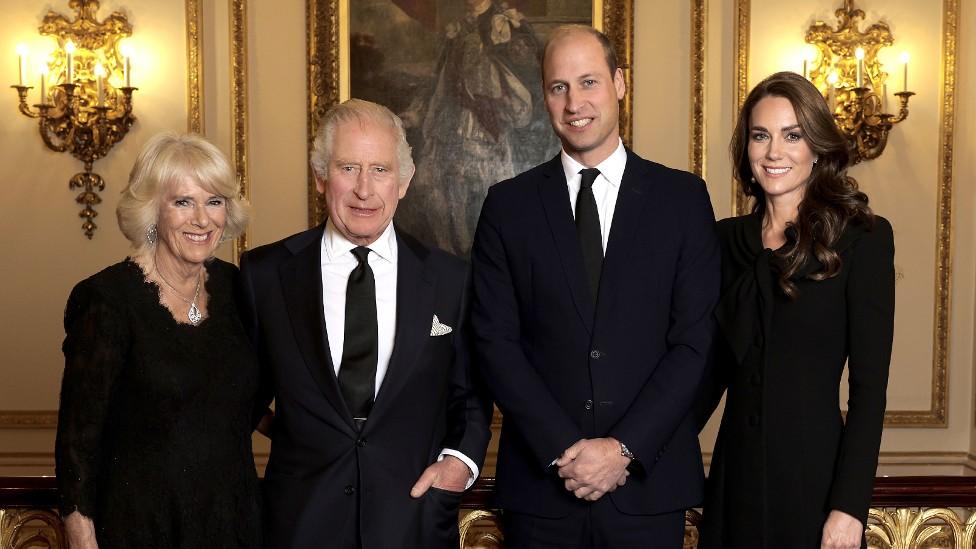
The King with the Queen Consort, Prince of Wales and Princess of Wales at Buckingham Palace last month
During the mourning for the Queen, as he visited various parts of the UK, King Charles came across as an approachable figure, shaking hands with the crowds, in a - literally - more hands-on image of monarchy.
In terms of a new start, however, some members of the family might be looking rather anxiously at the example of a "slimmed-down" monarchy in Denmark - where Queen Margrethe has removed titles from four of her grandchildren.
Scottish bonds
On Monday, before the trip to Edinburgh, King Charles will pay another visit heavy with its own symbolism.
He'll go to Dunfermline, which recently gained city status.
While there, he'll visit the 950-year-old Dunfermline Abbey, where - with appropriate symmetry - Charles III will find himself at the birthplace of Charles I, the last monarch born in Scotland.
The new King Charles became monarch in Scotland, when his mother, the late Queen Elizabeth II, died at Balmoral.
Dunfermline Abbey is also a burial place of medieval Scottish monarchs, including King Robert the Bruce, who fought the English in the 14th Century in a different kind of independence campaign.
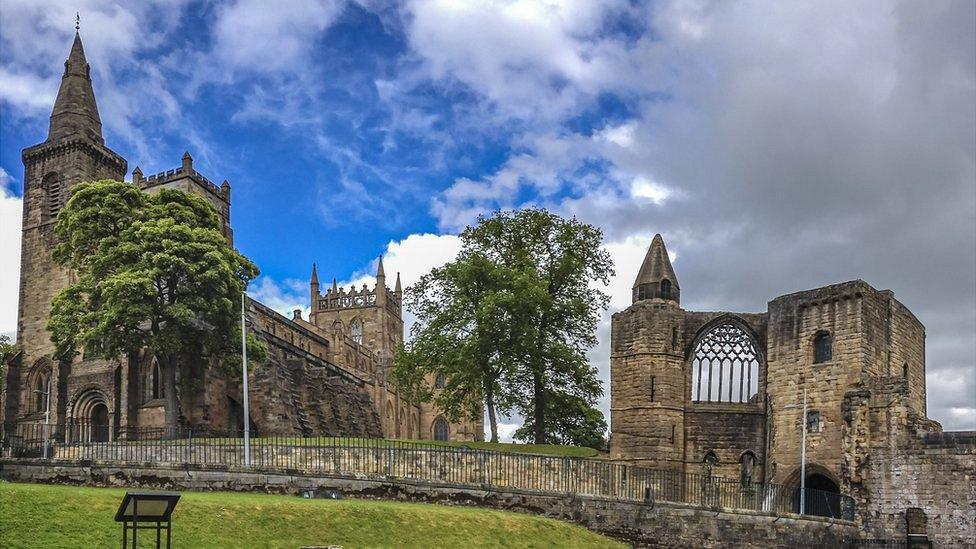
Dunfermline Abbey: a previous royal Charles - Charles I - was born here in 1600
"His mother adored Scotland - and it's definitely a nod to Scottish heritage and its intertwining with the monarchy," says Prof Maclaran.
The new King paying his respects at Dunfermline "is emphasising the deep bonds", she says.
King Charles will also be under scrutiny over any potential interference in politics, with his new role obliging him to maintain neutrality. Even as he puts his own stamp on the monarchy, the King will also have to avoid accusations of "meddling".
"It won't be like a CEO putting out a strategic plan. With the monarchy it emerges gradually, in speeches and events," says Prof Maclaran.
But Sir Anthony believes the King is committed to the role of "custodian" of values of tolerance and respect for the beliefs of others.
The key word for Charles is "harmony", says Sir Anthony - with a belief in keeping things in rhythm with nature, whether that's environmentalism, architecture, arts or spirituality.
"You can't have a monarchy that is dainty and withdrawn in the 21st Century, it has to have a meaning," he says.
Related topics
- Published3 October 2022
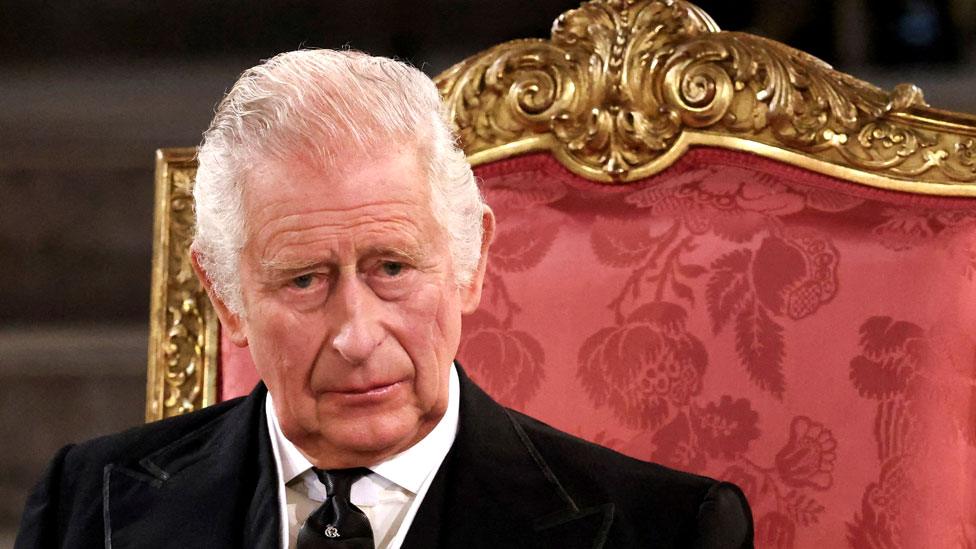
- Published1 March 2024
